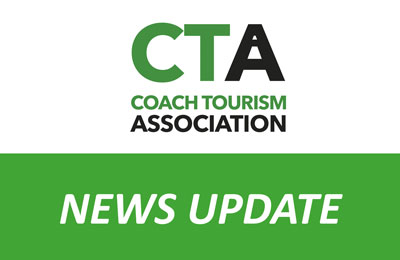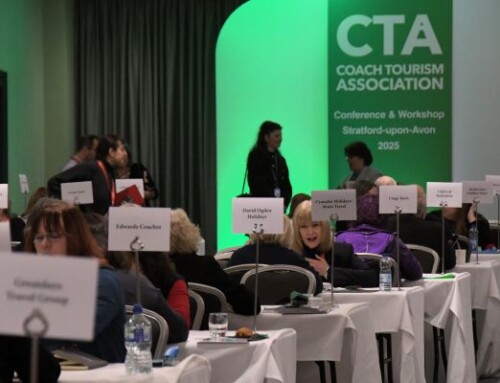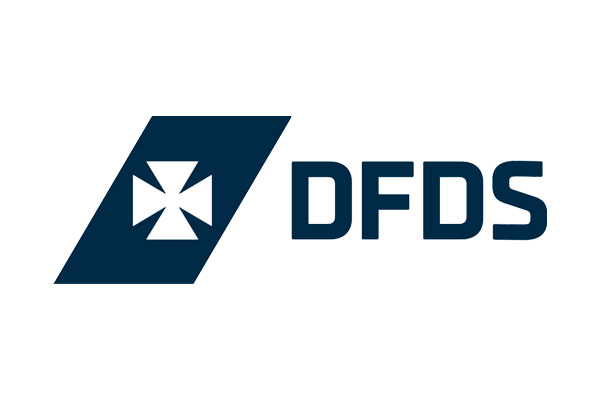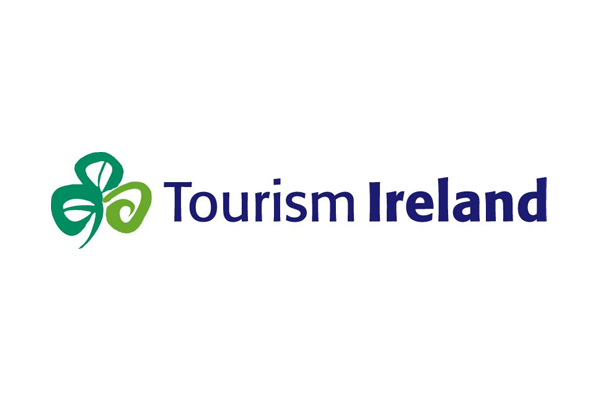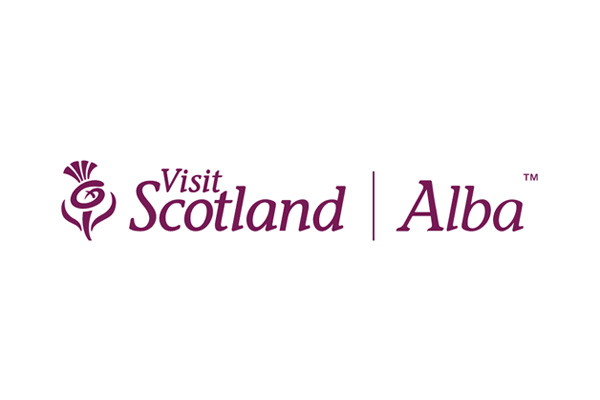COVID-19 Updates – week commencing 06/04/20
Here is a further update of developments from the government and various links to interpretation and guidance.
Go to date:
6 April 2020 …
Received from Tourism Alliance:
Tourism Alliance has been working with the Local Government Association regarding support for the many tourism businesses that were not specifically included in the original government advice on leisure and hospitality businesses that are eligible for inclusion in the Business Rates Relief Scheme.
As a result, the LGA has published the following advice for Local Authorities on what additional tourism businesses should be included in the Business Rates Relief Scheme within the flexibility allowed in the official guidance.
While this does not compel individual councils to incorporate these businesses into their schemes, we hope that it will both encourage many to do so and to provide evidence for businesses to make the case that they should be included in the scheme.
https://local.gov.uk/coronavirus-business-rates-relief-hospitality-and-leisure-sector
The business types included on the list are:
* Amusement Arcades
* Car Rental Sites
* Conference and Exhibition venues
* Travel and Tour Operators
* Tourism Information Centres
* Tourism Boards/Destination Management Organisations
* Coach operators
* English Language Schools
* Travel/Hospitality Industry Charities (offices)
* Marinas/Boat Hire/Passenger Boat Facilities
Government seeking business support for COVID-19 measures:
The Government is asking businesses if they can offer coronavirus (COVID-19) support. The support needed includes: Hotel rooms, transport and logistics, for moving goods or people
Businesses can share the areas they can offer support through the online portal.
Elman Wall webinar: Business & Finance Update
A COVID-19 Business & Finance Webinar took place on Thursday 2 April and the recording, presentation and COVID-19 Mastercard & Visa Business Bulletins are available HERE [1]
Operational updates from CPT:
APPROVED TACHOGRAPH CENTRES – SPECIAL NOTICE FROM DVSA
On 3rd April DVSA sent a special notice to all ATCs. Because of the current COVID-19 pandemic the requirement to calibrate or inspect tachographs periodically has been relaxed
Therefore all tachograph calibration and inspection expiry dates are extended by 3 months.
DVSA stress that the tachograph must continue to function correctly, and the system must still remain sealed. If the tachograph is faulty it must be repaired as required under normal circumstances
Initial calibrations are to continue, and any changes to the various parameters will also require action as normal
The DVSA notice is available on the link below
COVID-19 STATUTORY SICK PAY REBATE SCHEME – HMRC GUIDANCE
During the Budget announcement, the Chancellor of the Exchequer, Rishi Sunak set out plans for a rebate scheme for employers who pay SSP
The scheme is intended to allow small and medium sized employers, with fewer than 250 employees, to apply to HMRC to recover the costs of paying Statutory Sick Pay to their employees
HMRC are still working on developing the reimbursement scheme, and full details of how employers can apply for a rebate will be announced soon
As with the Coronavirus Job Retention Scheme, HMRC is not usually in the business of paying out money, so this work is taking longer than originally anticipated
The new updated guidance states that the Coronavirus Statutory Sick Pay Rebate Scheme will repay employers the current rate of SSP (£94.25) that they pay to current or former employees for periods of sickness starting on or after 13 March 2020
It is stressed that an employer can only claim the current rate of statutory SSP and not any higher amount that the employer may choose to pay employees
The repayment will cover up to 2 weeks starting from the first day of sickness, if an employee is unable to work because they either:
- have COVID-19
- are not able to work due to self-isolation at home
The scheme can be used by employers if they:
- are claiming for an employee who’s eligible for sick pay due to coronavirus
- had a PAYE payroll scheme on or before 28 February 2020
- had fewer than 250 employees on 28 February 2020
The guidance can be found on the link below
DRIVER LICENCE RENEWALS – MEDICALS
CPT is aware that currently some drivers are having difficulties arranging the necessary medical examinations in order to renew their licence entitlements. We should confirm that whilst exemptions have been offered in respect of Driver CPC, there is currently no equivalent exemption for driver medicals.
This is an issue that CPT has raised with DfT and DVLA on a number of occasions during the current COVID-19 outbreak, but unfortunately so far we have been unable to find a suitable solution. Clearly the road safety implications of a driver not being medically assessed when the legislation states they should is a factor in this.
The requirement for a PSV licence to expire at age 45, and for the driver then to submit an application for renewal and again after every subsequent 5 year period is laid down in section 99 of the Road Traffic Act 1988
The requirement to undertake a medical examination in order to apply for a PSV licence is laid out in section 4 of the Motor Vehicles (Driving Licences) (Large Goods and Passenger-Carrying Vehicles) Regulations 1990
It is likely that to obtain any exemption from the need to undertake a medical examination will require some form of legislative change which may be difficult to obtain in the circumstances
CPT will continue to work with DfT and DVLA to try to find a solution to the issue to ensure drivers can retain their vocational entitlement and be in the position to resume driving when the situation permits
COVID-19 ADVICE FOR PSV OPERATORS – TRAFFIC COMMISSIONERS OF GREAT BRITAIN
The Office of the Traffic Commissioner has updated the guidance note for operators that was issued to assist the transport industry during the Coronavirus (COVID-19) outbreak.
CPT has previously advised members that the Senior Traffic Commissioner has issued temporary guidance to the traffic commissioners and the OTC on the way they carry out their regulatory duties during the current COVID-19 outbreak
Alongside this on 18 March the OTC published an advice note for operators. This was subsequently updated on 20, 26 & 27 March.
Yesterday the OTC published a further update to this advice, including a number of Q & A that members will find useful
The updated advice note is available from the link below, and we will also highlight some of the important changes to the advice:
REQUIREMENTS WHEN A VEHICLE IS RETURNED TO SERVICE – SECTION 7
The usual guidance recommends that a pre-use inspection is carried out prior to putting vehicles that have been stood idle (VOR) back into service
However the traffic commissioners recognise that operators will need to start using vehicles as soon as possible when the current lockdown period ends, and business returns to normal.
Where there there may be delays returning vehicles to service due to lack of time to undertake a full inspection the advice note tells operators the steps they should follow
There have been a number of Q & A covering various scenarios added to the advice note which should help operators decide on the appropriate course of action
REQUIREMENTS FOR PROFESSIONAL COMPETENCE – SECTION 8
If a Transport Manager has to temporarily work from home in order to comply with the social distancing instructions from Government, they must always continue to fulfil their statutory duties, and therefore should consider how this can be achieved, possibly through the use of technology and with other assistance.
They may be required to demonstrate how they are doing this at any time.
If the period of working from home extends beyond four months they are advised to formally notify the traffic commissioner of the working arrangements
In a situation where the Transport Manager is furloughed and is therefore no longer carrying out the statutory duties, this must be advised to the Office of the Traffic Commissioner by email providing full details of the arrangements
If the Transport Manager is advised to undertake a 14 day period of self-isolation the traffic commissioner would not expect any notification
Operators are reminded that in the temporary guidance issued by the Senior Traffic Commissioners if there is a longer period where the Transport Manager will be incapacitated, or if due to the current COVID-19 crisis an operator cannot have a suitably qualified transport manager in place, the operator can apply for a period of grace which will have a starting point of 4 months
It should be remembered that a period of grace can never be assumed to have been granted, and an application to the OTC must always be made
ONLINE TRAINING – SECTION 9
This section offers advice to operators where a director or transport manager have been instructed to complete certain training for professional competence by a certain date
The advice references the ability to undertake online training if face to face training is unavailable
The traffic commissioners will deal with these situations on a case by case basis
FINANCIAL STANDING – SECTION 2
This advice has not been updated in the current version of the advice, but it bears repeating
It is a condition of holding an Operators Licence that sufficient Financial Standing is demonstrated at all times
It is important that Operators who know that they do not currently fulfil their financial standing requirements inform the OTC immediately to request a period of grace
Given the exceptional circumstances, the Senior Traffic Commissioner has directed that a traffic commissioner may rely on a satisfactory financial check within the previous 12 months as evidence to support the granting of a Period of Grace
Again the starting point for a period of grace will be 4 months, but can be extended to 6 months
On considering whether to grant a period of grace a traffic commissioner will need to be satisfied that:
the operator is not insolvent
there are no outstanding maintenance or other issues, which might impact on road safety
It should be remembered that a period of grace can never be assumed to have been granted, and an application to the OTC must always be made.
7 April 2020 …
Tourism Alliance reports:
Guidance on claiming employees’ wages through the Coronavirus Job Retention Scheme
HMRC has published detailed guidance for businesses on how to claim support for furloughed workers through the JRS. As well as stating what information is needed to make a claim, it also includes information on how the JRS applied to people in a range of special circumstances including
-
- office holders (including company directors)
- salaried members of Limited Liability Partnerships (LLPs)
- agency workers (including those employed by umbrella companies)
- limb (b) workers
https://www.gov.uk/guidance/claim-for-wage-costs-through-the-coronavirus-job-retention-scheme
Large Business Interruption Loan Scheme
Following on from the Chancellor’s announcement last Friday, this brief outline has been published on the new Large Business Loan Scheme
To be eligible, your business must:
-
- be UK-based in its business activity
- have an annual turnover between £45 million and £500 million
- be unable to secure regular commercial financing
- have a borrowing proposal which the lender:
would consider viable, were it not for the COVID-19 pandemic
believes will enable you to trade out of any short-term to medium-term difficulty
ETOA webinar
ETOA has provided the following link to a webinar held on 6 April. It includes a briefing from
Neil Baylis, Mishcon de Reya partner concerning the current legal position on the PTD – this section starts at around 40.18.
https://youtu.be/HLP0FPIxC0Q
CPT operational update:
CORONAVIRUS JOB RETENTION SCHEME – UPDATED HMRC GUIDANCE
HMRC recently released updated guidance on the Coronavirus Job Retention Scheme
The updated guidance covers among other things
- more detailed information on scheme eligibility
- further information on how to calculate a claim
- clarification of what constitutes wages
The updated guidance for employers is available on the link below
There is also updated advice for employees which is available here
AGREEING TO FURLOUGH WORKERS – UPDATED HMRC GUIDANCE
Employers should discuss the process with their employees and make any necessary changes to the employment contract by agreement
When employers are making decisions in relation to the process, the normal equality and discrimination laws will apply
To be eligible for the CJRS grant employers must confirm in writing to their employee that they have been furloughed.
A record of this communication must be kept for 5 years.
Employers do not have to place all of their employees on furlough. It should be remembered that those employees who you do place on furlough cannot undertake any work for you during the period
PAYROLL AND DEDUCTIONS – UPDATED HMRC GUIDANCE
Employers should make a claim using the amounts in their payroll – either shortly before or during running payroll. Claims can be backdated until 1 March where employees have already been furloughed.
If appropriate, worker’s wages should be reduced to 80% of their salary within your payroll before they are paid. This adjustment will not be made by HMRC.
Any employees placed on furlough must be furloughed for a minimum period of 3 consecutive weeks. When they return to work, they must be taken off furlough. Employees can be furloughed multiple times, but each separate instance must be for a minimum period of 3 consecutive weeks.
Employers should still make the statutory income tax and national insurance deductions from furlough payments.
These deductions should also include pension contributions (both employer contributions and automatic contributions from the employee), unless the employee has opted out or stopped payments into their pension
WHAT CAN BE INCLUDED IN A CLAIM? – UPDATED HMRC GUIDANCE
Claims should be started from the date that the employee finishes work.
Employers can claim 80% of the employees normal wage as at 28 February before Tax and NI. Employers must still pay the ENIC and minimum pension contributions. These can be claimed back through the scheme.
Employers can claim for any regular payments they are obliged to pay your employees. This includes wages and previously worked overtime However, discretionary bonus (including tips) and non-cash payments should be excluded.
The reference salary should not include the cost of non-monetary benefits provided to employees, including taxable benefits in kind. Also any benefits provided through salary sacrifice schemes (including pension contributions) that reduce an employee’s taxable pay should also not be included in the reference salary.
However, HMRC agrees that COVID-19 counts as a life event that could warrant changes to salary sacrifice arrangements, if the relevant employment contract is updated accordingly.
INDIVIDUALS WHO ARE NOT EMPLOYEES – UPDATED HMRC GUIDANCE
As well as employees, the grant can be claimed for any of the following groups, if they are paid via PAYE:
- office holders (including company directors)
- salaried members of Limited Liability Partnerships (LLPs)
- agency workers (including those employed by umbrella companies)
The guidance sets out specific considerations for those individuals who are paid via PAYE, but who are not necessarily employees in employment law.
Office holders can be furloughed and receive support through CJRS. The furlough, and any ongoing payment during furlough, must be agreed between the office holder and the party who operates PAYE on the income they receive for holding their office. Where the office holder is a company director or member of a Limited Liability Partnership (LLP), the furlough arrangements should be adopted formally as a decision of the company or LLP
Salaried company directors are eligible to be furloughed and receive support through CJRS.
Company directors owe duties to their company which are set out in the Companies Act 2006. Where furloughed directors need to carry out particular duties to fulfil the statutory obligations they owe to their company, they may do so provided they do no more than would reasonably be judged necessary for that purpose
Members of LLPs who are designated as employees for tax purposes (‘salaried members’) under the Income Tax (Trading and Other Income) Act 2005 are eligible to be furloughed and receive support through CJRS
EMPLOYEE RIGHTS – UPDATED HMRC GUIDANCE
Employees retain their rights at work, including:
- statutory sick pay (SSP)
- maternity and other parental rights
- rights against unfair dismissal
- redundancy payments
Funding claimed through CJRS cannot be used to substitute redundancy payments.
HMRC will continue to monitor payments after the scheme has closed
TRANSPORT MANAGERS – TRAFFIC COMMISSIONERS GUIDANCE
The Traffic Commissioners updated their guidance note yesterday (6th April)
The update covered the steps to follow if a Transport Manager is placed on furlough
The traffic commissioners will consider each case on its own merit, but have included some examples to show the starting point in their decision making
- Where an operator has temporarily laid up the whole fleet of licensed vehicles, the Transport Manager will not be required to exercise continuous and effective management of an undertaking which is not in operation. It is likely that the traffic commissioner would consider that there continues to be a genuine link between the operator and Transport Manager, who must be re-engaged before operations recommence. The traffic commissioner would not normally expect to be advised of that change
- If an operator employs more than one Transport Manager and has reduced their overall operation one or more of the Transport Managers
may be furloughed The operator and/or the Transport Manager(s) must advise the Office of the Traffic Commissioner by email providing details of the arrangements. The Traffic Commissioner may require additional information - If an operator continues to operate and attempts to furlough the only Transport Manager, the Office of the Traffic Commissioner must be advised immediately. There is a mandatory and continuing requirement for professional competence on all standard licences. In order to continue operating that standard operator must make an application for a Period of Grace or seek a temporary
exemption, in order to continue operating without a Transport Manager
The updated guidance is available from the link below
DVLA UPDATED CONTACT DETAILS – COVID-19
DVLA has reduced the number of staff working on site in Swansea, which has impacted on their ability to service customers efficiently
In order that they can continue to prioritise urgent calls from those who are directly involved in the nation’s response to COVID-19 as a key worker, DVLA will no longer service calls from other users
PSV drivers are of course considered “key workers”, as are PSV operators
DVLA has put in place new contact details that should be used during the ongoing COVID-19 crisis to ensure that drivers and operator queries are prioritised
The current opening hours are Monday to Friday 10am to 4pm
Contact details:
Drivers enquiry – 0300 123 2408
Drivers Medical enquiry – 0300 790 6103
Vehicles enquiry – 0300 123 1272
CLEAN AIR ZONES DELAY NOTIFICATION – JOINT AIR QUALITY UNIT
This morning (7 April) a message was sent to stakeholders on behalf of Andrew Jackson, Isobel Pastor and Suzanne Trueman, the Joint Heads of JAQU.
The message acknowledges that because of the restrictions on movement put in place by the Government, there may be a short term improvement in air quality, but that this improvement cannot be expected to continue once the crisis ends.
The Government remains under a legal obligation to deliver compliance with air quality limits, measured on an annual average basis, in the shortest possible time, and remains committed to delivering on this obligation.
In order to provide certainty to those affected by Clean Air Zones, JAQU will work with local authorities to delay introducing Clean Air Zones until after the Covid 19 outbreak has been resolved.
JAQU will keep the timetable under review but currently expect the introduction of Clean Air Zones to be no earlier than January 2021. JAQU assure stakeholders that they will keep any delay as short as possible.
Members will be aware that both Birmingham and Leeds have already announced a delay in the start of their previously announced CAZ. While the announcement by JAQU does not state this explicitly, there is likely to be a delay in the implementation of the CAZ plans being developed in other areas.
JAQU will keep the situation under review, and CPT will update members when any further information is available.
8 April 2020 …
More operational updates from CPT:
FURLOUGH AGREEMENT – SAMPLE LETTER
Yesterday (7 April) we sent a mailshot containing the updated guidance provided by the Government for employers who wished to use the Coronavirus Job Retention Scheme.
The updated guidance confirmed that employers should discuss the process with their employees before the decision is made and make any necessary changes to the employment contract by agreement.
When employers are making decisions in relation to the process, the normal equality and discrimination laws will apply.
To be eligible to use the CJRS grant employers must confirm in writing to their employee that they have been furloughed.
An accurate record of this written confirmation must be kept for 5 years.
We have been asked by some members for an example of a furlough agreement letter between an employer and employee.
A sample letter that members can use as a template can be found on the link below.
EMPLOYEES ON SICK LEAVE OR SELF ISOLATING – EMPLOYEES WHO ARE SHIELDING
HM Treasury guidance is that employees on sick leave for any reason including COVID-19 or self-isolating due to symptoms of COVID-19 should get statutory sick pay, but can be furloughed after this ends.
Employees who are shielding for 12 weeks in line with public health guidance can be placed on furlough during this period.
Tourism Alliance reports:
Coronavirus COVID-19 Destination Management Resilience Scheme
- A £1.3 million scheme has been announced by the Tourism Minister, Nigel Huddleston, which will provide financial support to Destination Management Organisations (DMOs) that are at risk due to the COVID-19 pandemic. The funding is available to at-risk DMOs in England which usually receives at least 50% of its income from commercial sources, following a light touch application process.
- The scheme will cover:
- DMOs are able to apply for support to cover the costs of up to two members of staff with an upper threshold of £2,500 per employee per month, plus employer on-costs restricted to National Insurance and pension contributions for a three-month period. This support is for up to three months
- The scheme must support frontline business engagement and communication posts (not marketing or other functions)
- Up to £5,000 towards operating costs over this three-month period
- Find out how to apply on VisitEngland’s website
9 April 2020 …
LONDON LOW EMISSION ZONE – ANNOUNCEMENT BY TfL
The Mayor of London, Sadiq Khan, has asked Transport for London to delay the enforcement of new rules for London’s Low Emission Zone (LEZ) for at least four months after their introduction this October.
The new rules under both schemes will still legally come into force on 26 October 2020, but no charges will be payable or enforced for non-compliant vehicles under those new standards until the end of February 2021
Operational updates from CPT following discussions with HSE:
LIFTING OPERATIONS & LIFTING EQUIPMENT REGULATIONS – LOLER
CPT has been in contact the HSE about the application of LOLER testing during the current crisis
LOLER requires that all equipment used for lifting is fit for purpose, appropriate for the task, suitably marked and, in many cases, subject to statutory periodic ‘thorough examination’
Unfortunately, CPT has been advised that HSE does not intend to relax the testing requirements at the present time.
The response from HSE included the following:
Lifting equipment for the lifting of persons is carried out every six months with a dated report issued to the lift owner. The next six-month examination should take place on or before this date, but not after.
If no thorough examination has taken place prior to the date on the report, the lifting equipment should not be used until it has been examined by a competent person.
There is a higher risk of lifting equipment failure should it not be examined as per the six month schedule and duty holders are expected to take all reasonably practicable steps to make sure their equipment complies with the law.
HSE will keep the situation under review and does not have any plans to issue any exemptions to LOLER requirements.
LIFTING OPERATIONS & LIFTING EQUIPMENT REGULATIONS 1998
JOINT STATEMENT BY HSE, TUC & CBI – CORONAVIRUS
The Health and Safety Executive, the TUC) and CBI have issued a joint statement…
Many workers, union reps and employers have questions and concerns about safe working – especially for those continuing to work away from home.
The joint statement between HSE, the TUC and the CBI is intended to clarify the position, as the health and safety of workers remains paramount.
Employers must continue to provide workers with information about risks to their health and the actions their employers must take, particularly in following Public Health England guidelines on social distancing.
The full statement is available from the link below:
RIDDOR – REPORTING OF COVID-19
HSE has issued guidance over how employers should treat COVID-19 under the Reporting of Injuries, Diseases and Dangerous Occurrences Regulations 2013 (RIDDOR)
Employers must only make reports under these regulations when:
- a worker has been diagnosed as having COVID 19 and there is reasonable evidence that it was caused by exposure at work. This must be reported as a case of disease.
- a worker dies as a result of occupational exposure to coronavirus and this is confirmed as the likely cause of death by a registered medical practitioner you must report this as soon as is practical and within 10 days of the death
HSE SOCIAL DISTANCING ADVICE – KEEPING BUSINESSES OPEN
HSE state that social distancing is fundamentally a public health measure introduced to reduce the spread of infection. HSE recognise the concerns raised on social distancing within the workplace and they are in contact with trade unions.
Where HSE identifies employers who are not taking action to comply with the relevant PHE guidance to control public health risks, eg employers not taking appropriate action to socially distance or ensure workers in the shielded category can follow the NHS advice to self-isolate for the period specified, we will consider taking a range of actions to improve control of workplace risks. These actions include the provision of specific advice to employers through to issuing enforcement notices to help secure improvements with the PHE guidance.
The general advice from Government is that people should work from home wherever possible
Of course for the PSV sector this is is unlikely to be possible for the large majority of workers
Employers who have people onsite or in their offices should ensure that employees are able, where possible, to follow Public Health England guidelines on social distancing (including, where possible, maintaining a 2 metre distance from others), and hygiene (washing their hands with soap and water often for at least 20 seconds)
HOME WORKING – PROTECTING HOME WORKERS
HSE are reminding employers that they have the same health and safety responsibilities for home workers as for any other workers.
When someone is working from home, permanently or temporarily an employer hould consider:
- How will you keep in touch with them?
- What work activity will they be doing (and for how long)?
- Can it be done safely?
- Do you need to put control measures in place to protect them?
HSE state that there is no increased risk from DSE work for those working at home temporarily.
So in the current situation employers do not need to do home workstation assessments
